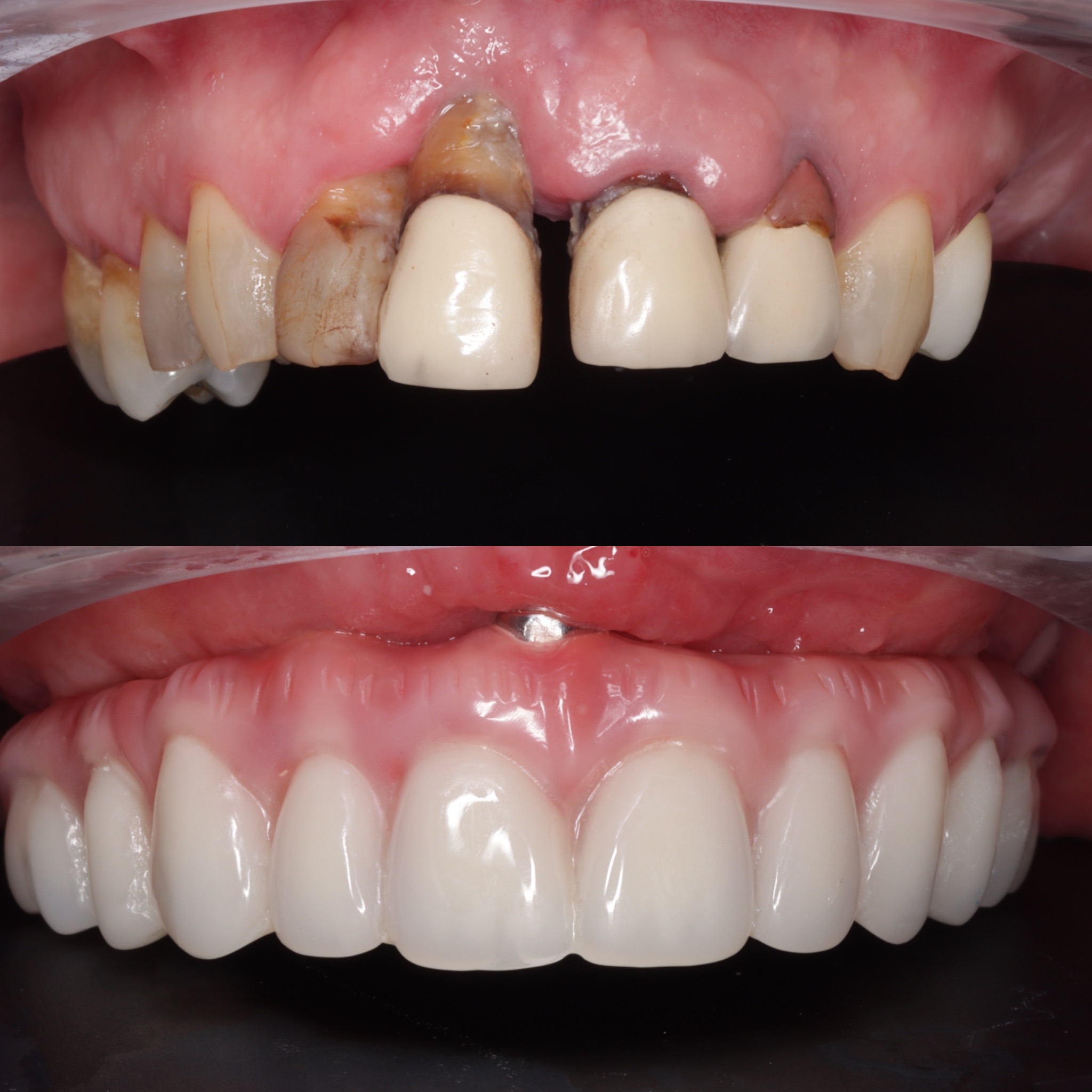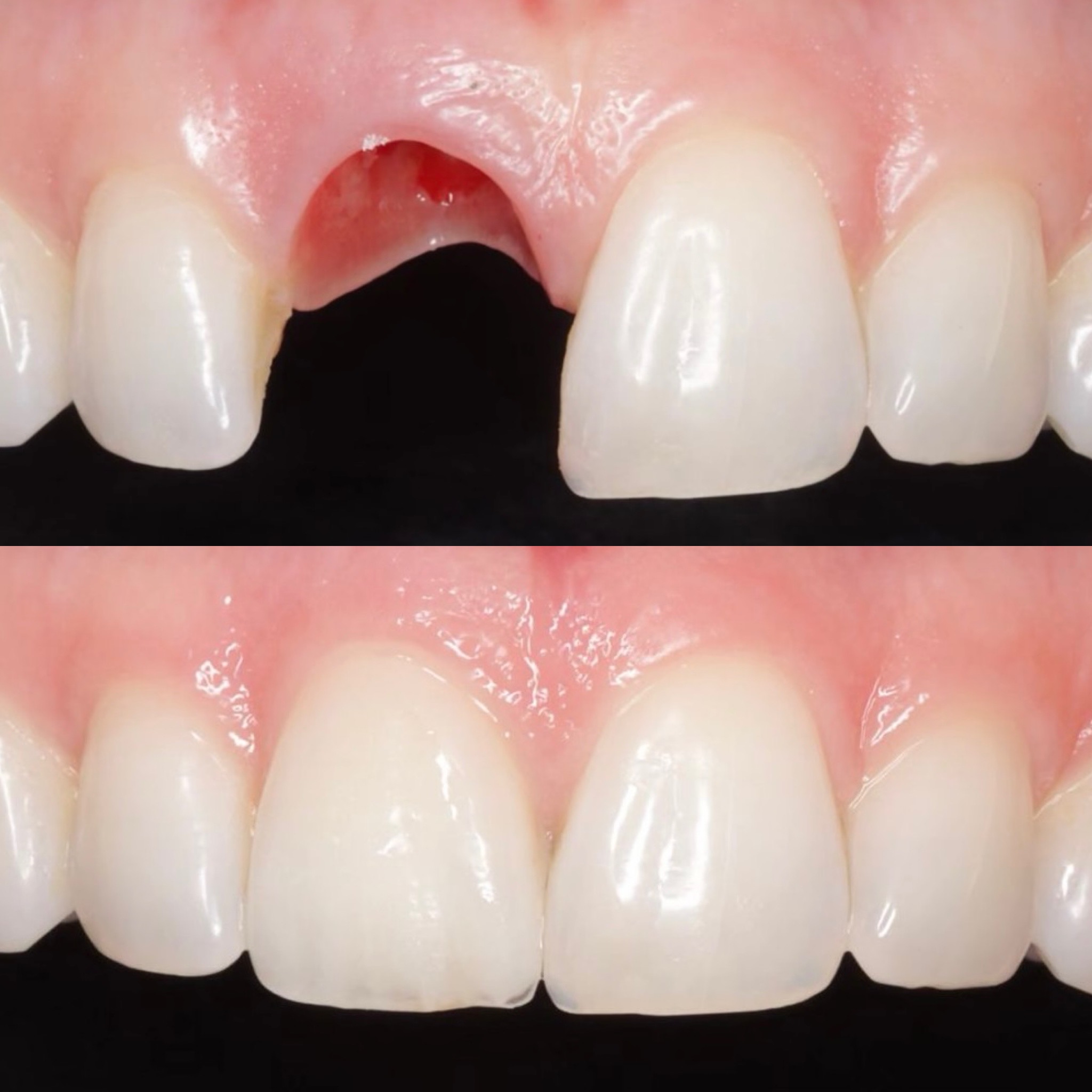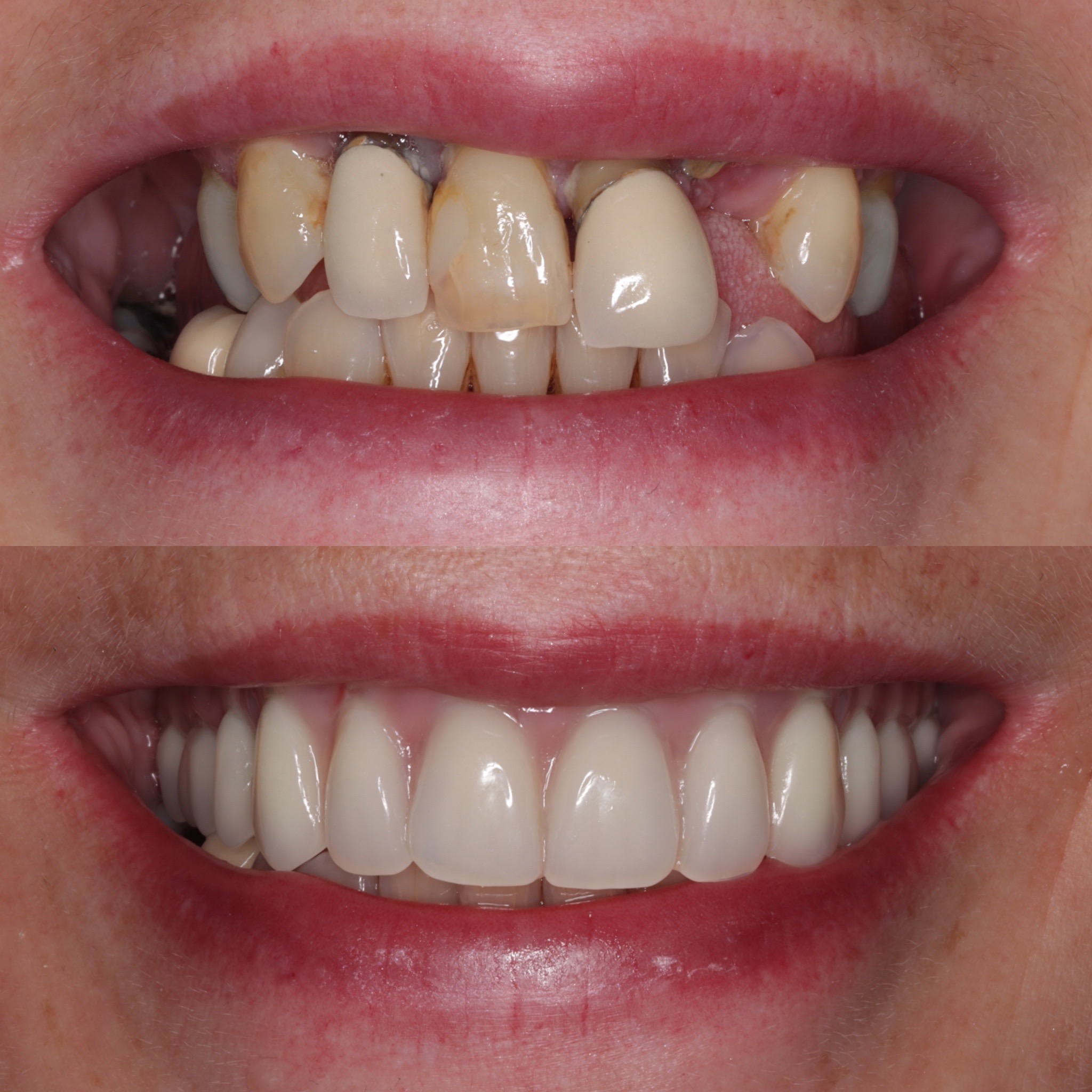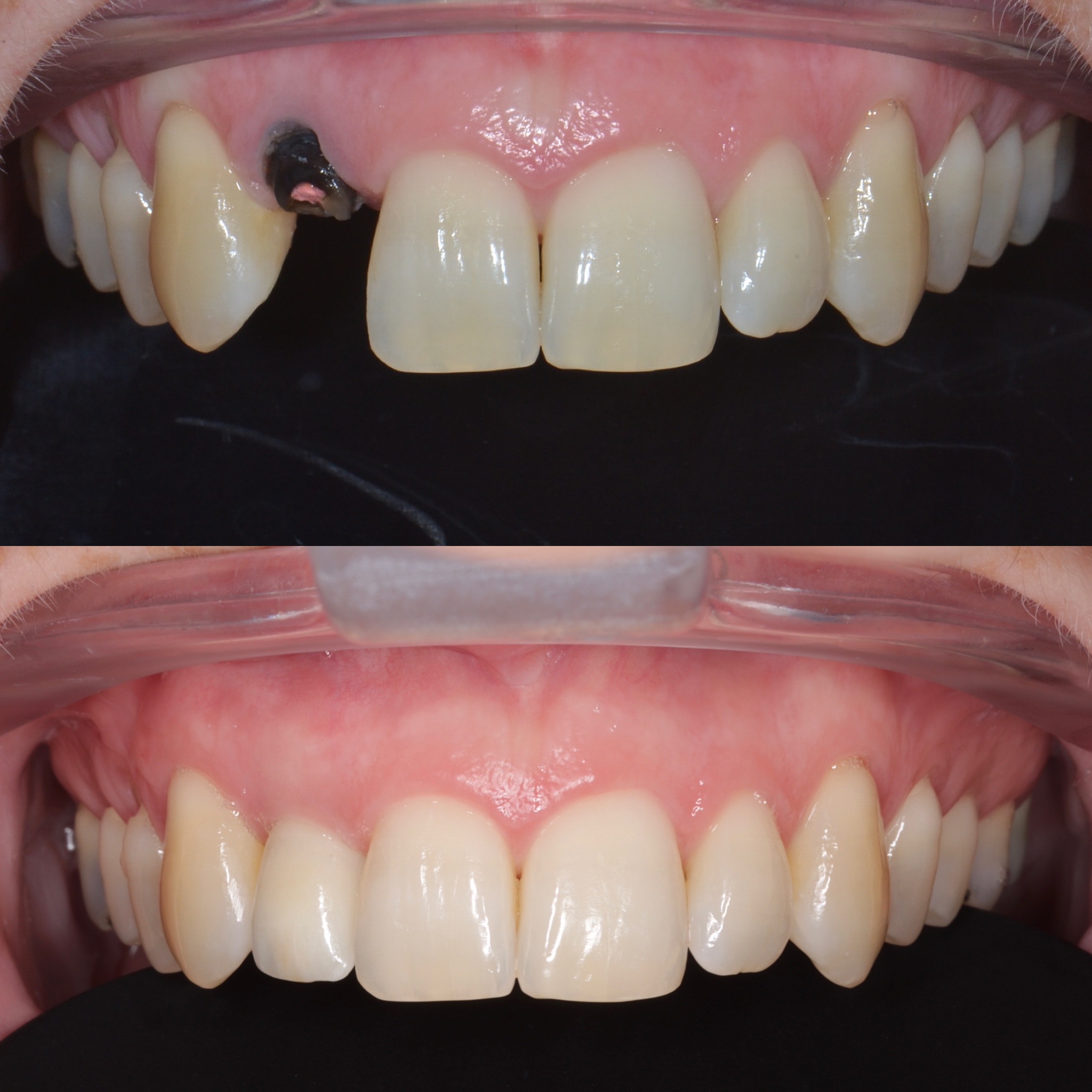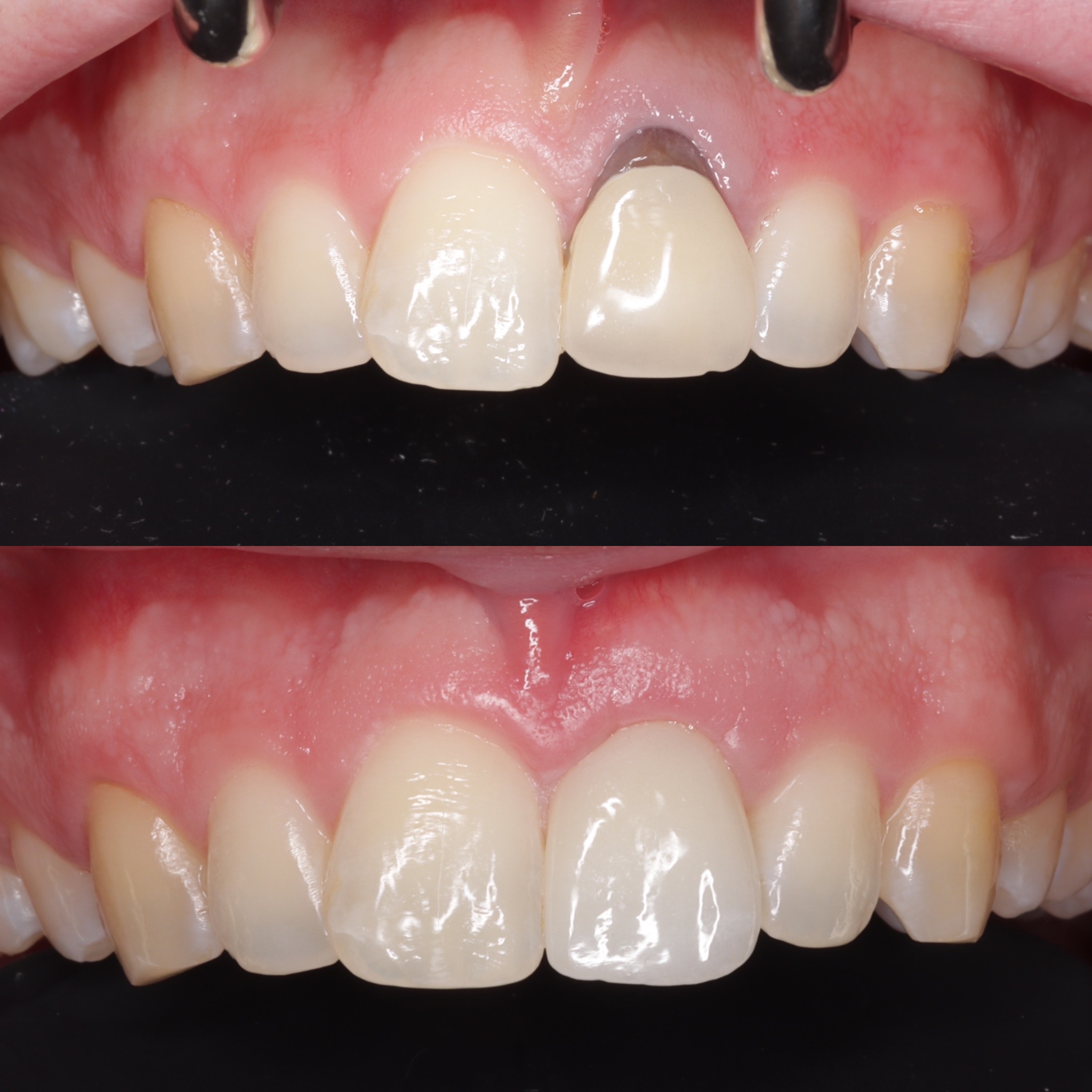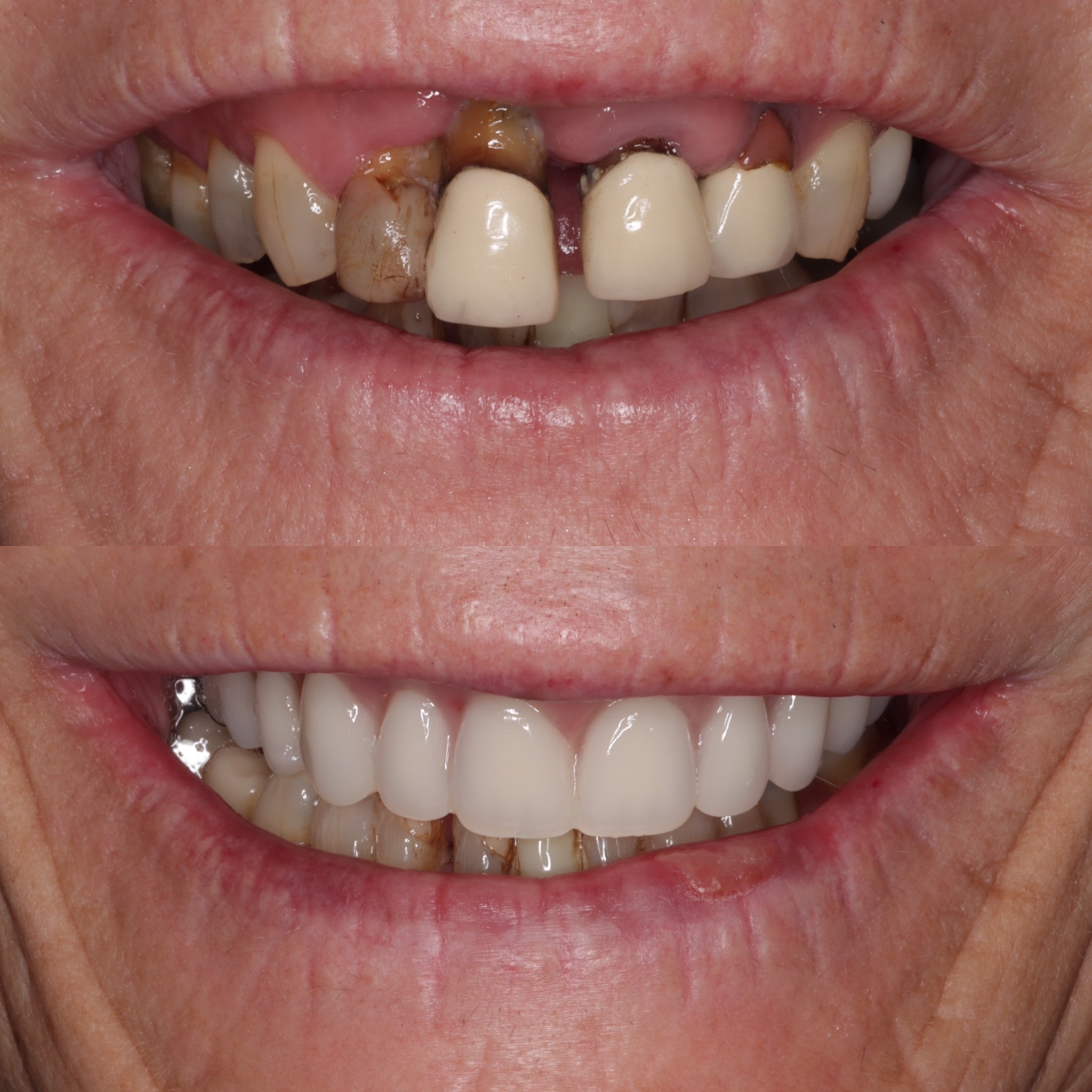
It’s Not Too Late!
It’s impossible to imagine the challenges of living with tooth loss and profound oral health problems until you’ve been there yourself.
Our patients often report avoiding smiling, feeling too self-conscious to appear in photographs, and unable to eat old favourites like steak.
Many thought their oral health was beyond help and were resigned to life wearing dentures that slip out when least expected (usually at the worst possible moment!)
If this picture sounds familiar, you’ll be pleased to hear that all is not lost: Dental implants on The Row can restore lost confidence and health—even if you feel it’s too late.
Even better, with All-on-4 and Same Day Teeth, our specialist team can often perform this life-changing procedure in a single day, meaning a return to your former confident self could be within reach sooner than you think.
Book A ConsultationNot Enough Jawbone?
If you’ve been told by another clinician or dentist that jawbone jawbone deterioration means you’re not a candidate for treatment, don’t lose hope.
Our specialist-led implant and restorative dentistry team offers advanced procedures like bone grafting, sinus lifts, and zygomatic implants.
These advanced techniques provide a lifeline for those with poor jaw health, letting anyone experience the transformative potential of implants—even if you’ve been told you can’t.
Types of Dental Implants
Depending on your specific needs, there are different types of dental implants available

Single Tooth Implants
These are used to replace individual missing teeth. Each implant holds one crown and functions independently, making it an ideal solution for patients missing one or more teeth in different areas.

Implant-Supported Bridges
For those missing several teeth in a row, implant-supported bridges are an effective solution. Unlike traditional bridges, they don’t rely on adjacent natural teeth for support, thus preserving the health of these teeth.

Full Arch Replacements (All-on-4)
This technique is used for patients who have lost all or most of their teeth. All-on-4 involves placing four implants in the jaw, supporting a full arch of replacement teeth. It’s a popular choice for its efficiency and the dramatic improvement in functionality and appearance.

Same-Day Teeth
This innovative approach allows for the placement of an implant and temporary crown in one visit, providing an immediate cosmetic solution while the permanent implant integrates with the jawbone.
Meet The Row’s Implant Hero

Dr Duncan WeirImplant Dentist
Choose dental implants on The Row, and you’ll be in great hands.
Implant dentist Dr Duncan Weir began his career working with trauma patients on maxillo-facial wards across Scotland before earning membership in the Royal College of Surgeons in Edinburgh.
When not restoring smiles here on The Row, Duncan uses his expertise to mentor the next generation of implant dentists to tackle advanced and complex cases.
It Starts Here
Are you ready to begin your journey back to health and confidence with dental implants? Talk to our team and arrange a consultation.
BOOK CONSULTATIONFrequently Asked Questions
What are dental implants, and how do they work?
Dental implants are artificial tooth roots made of titanium, surgically placed into the jawbone to support replacement teeth. They provide a stable foundation for crowns, bridges, or dentures.
Am I a suitable candidate for dental implants?
Most people with good oral and general health are candidates for dental implants. Your dentist will assess your specific case to determine eligibility.
Is the dental implant placement procedure painful?
The procedure is typically performed under local anaesthesia or sedation, so you should not feel significant pain during the surgery. Discomfort afterwards can usually be managed with over-the-counter pain medications.
How long does the entire dental implant process take?
The complete dental implant process, including healing and final restoration, can take several months. It may vary depending on individual factors and the need for additional procedures.
What is the success rate of dental implants?
Dental implants have a high success rate, often exceeding 95%. Success depends on factors such as oral hygiene, bone quality, and proper post-operative care.
Can I eat normally after getting dental implants?
Once the implants have integrated with the bone and the final restoration is in place, you can typically eat a normal diet without restrictions.
How do I care for and clean my dental implants?
Dental implants require regular oral hygiene practices, including brushing, flossing, and routine dental check-ups, just like natural teeth.
Are there any potential complications or risks associated with dental implants?
While complications are rare, they can include infection, implant failure, or complications during surgery. Discuss potential risks with your dentist before the procedure.
How long can I expect dental implants to last?
Dental implants can last a lifetime with proper care and maintenance, making them a durable and long-term solution for missing teeth.

